SUSTAINABILITY. WHEN YOU hear the word, do questions pop into your head? “What does that even mean in 2018?” “Can my business afford to adopt sustainable practices?” “Where do I start?”
First, let’s look at the modern concept of sustainability. It takes a more holistic approach that includes not only eco-friendliness but also social impact, with the latter encompassing how a company engages its employees and community.
As to the affordability question, consider instead how not making such investments can affect your ability to compete for certain customers.
“Millennials are now the largest consumer population, and they are willing to pay more for sustainable products and services that align with their values,” says Caitlyn Bolton, founder and executive director of the Pet Sustainability Coalition.
She also points out that millennials have overtaken previous generations to become the largest segment of the U.S. workforce. Hiring their best and brightest should be a priority for your business, and sustainable efforts can help attract those applicants.
“Millennials are willing to take a pay cut to work for a company that integrates environmental and social purpose into its mission,” Bolton says.
Advertisement
So, where to start? Look to these pet businesses for inspiration and advice. We talked to pet product manufacturers that lead the industry in sustainability, much of which translates to retail and services settings. You’ll also hear from counterparts at stores, grooming shops and daycare/boarding facilities about how they balance sustainable practices with business goals.
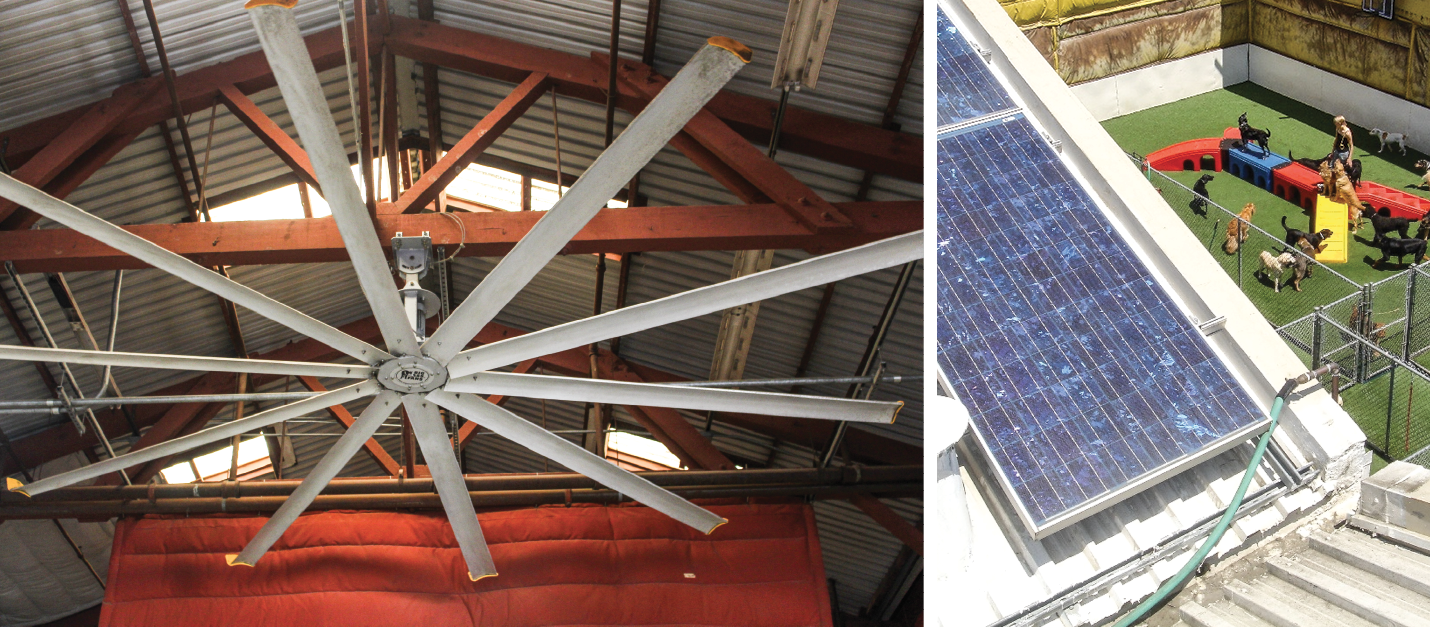
PET CAMP
SAN FRANCISCO, CA
How has Pet Camp become one of the most sustainability-minded businesses in the industry? Husband and wife Mark Klaiman and Virginia Donohue worked for the Environmental Protection Agency before founding their daycare and boarding facility in 1997.
“We already had an environmental ethos,” Klaiman explains. “In part, it’s about trying to be better for our kids. And this is our home. We know every business has an environmental impact on its community, so we look for ways to minimize that.”
In part, it’s about trying to be better for our kids. And this is our home. We know every business has an environmental impact on its community, so we look for ways to minimize that.”
Advertisement
The first priority was not only reduction of energy used but also reliance on outside providers. They changed 20 light fixtures in the 6,000-square-foot building to more efficient fluorescent; converted pressure washers and pool heaters and filters to use less energy at 220 volts instead of 120; and installed a 33-kilowatt solar-panel system that generates more than half of the electricity needed. Ventilation now is aided by BigAss Fans, high-volume, low-speed units that use only 58 watts.
All of the above — and other improvements — allow Pet Camp to save more than 70 percent annually on energy bills, compared to those for the facility as originally built.
To those concerned about costs associated with environmental sustainability upgrades, Klaiman recommends taking advantage of any federal, state and local incentive programs.
“Always look for help,” he says. “It’s shocking what money is available.”
Such funds helped pay for many of the changes made. The solar-panel system cost $280,000, but tax savings and California via electric company PG&E paid for $140,000. The San Francisco Community Power Cooperative paid for $8,000 of the BigAss Fan installation bill of $16,000.
Klaiman also has found a way to turn dog poop deposited on-site into a source of energy and savings. Through a composting program with the city and waste-management provider Recology, the poop blends with other “green” waste at East Bay Municipal Water District to generate methane gas, which gets turned into electricity for the treatment facility. This also allows Pet Camp to divert more than 80 percent of its waste from landfills, which reduces its Recology bill by more than $6,500 per year.
Advertisement
“We are unbelievably fortunate, in that we have a waste hauler willing to be creative with us,” he says, pointing out that such opportunities may exist in other areas of the country, as providers save money as well. “Landfills are expensive. The more they can divert from a landfill, the longer they can put off on building a new one.”
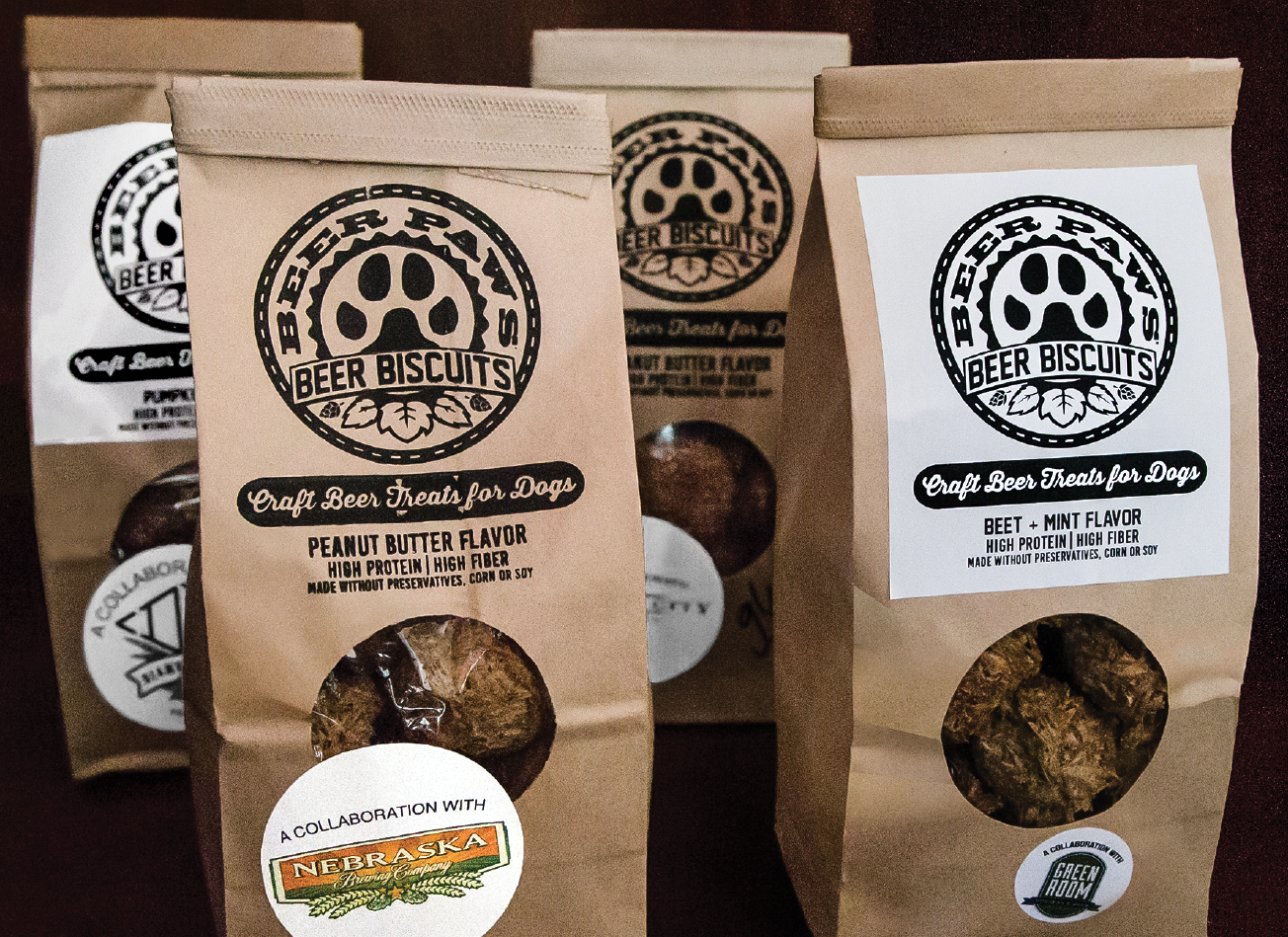
BEER PAWS
KANSAS CITY, MO
In a pet world gone grain-free, Crystal Wiebe embraces the ingredient as a way to practice environmental sustainability while making dogs happy. She takes spent grains from breweries — which can have literal tons to dispose of daily, depending on their size — and uses them to create treats for her Beer Paws line of products.
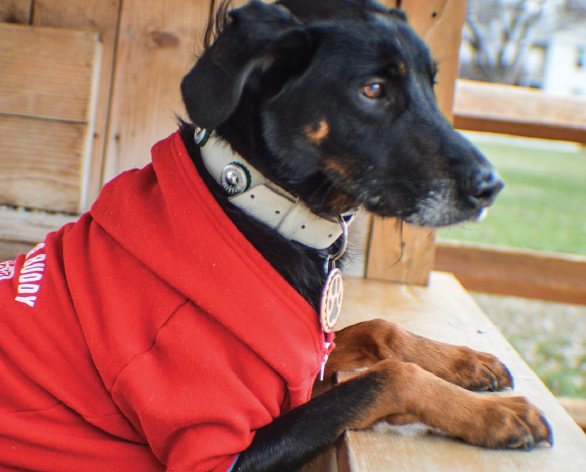
“Spent grains are mostly fiber and protein, which make for a healthy treat,” Wiebe explains. “Even if you feed your dogs grain-free kibble, as I do, it’s OK to make an exception with treats, which aren’t the basis for their diet.”
Her company also makes Doggy Beer, of course, which she sells by the six-pack in gently used human-beer carriers given to her by friends, family and brewery partners.
“It takes more energy to recycle than to reuse,” Wiebe says, “so if we use them a few more times before they have to be recycled, we delay that.”
Beer Paws accepts human-beer bottle caps and leather belts for upcycling. They come together as stylish dog collars, with pet parents given a choice of 12-plus breweries to choose from when placing their order.
To those just starting to make sustainability a priority in their pet business, Wiebe has this advice: “I encourage folks to think twice before throwing anything away. It just might have another life in it.”
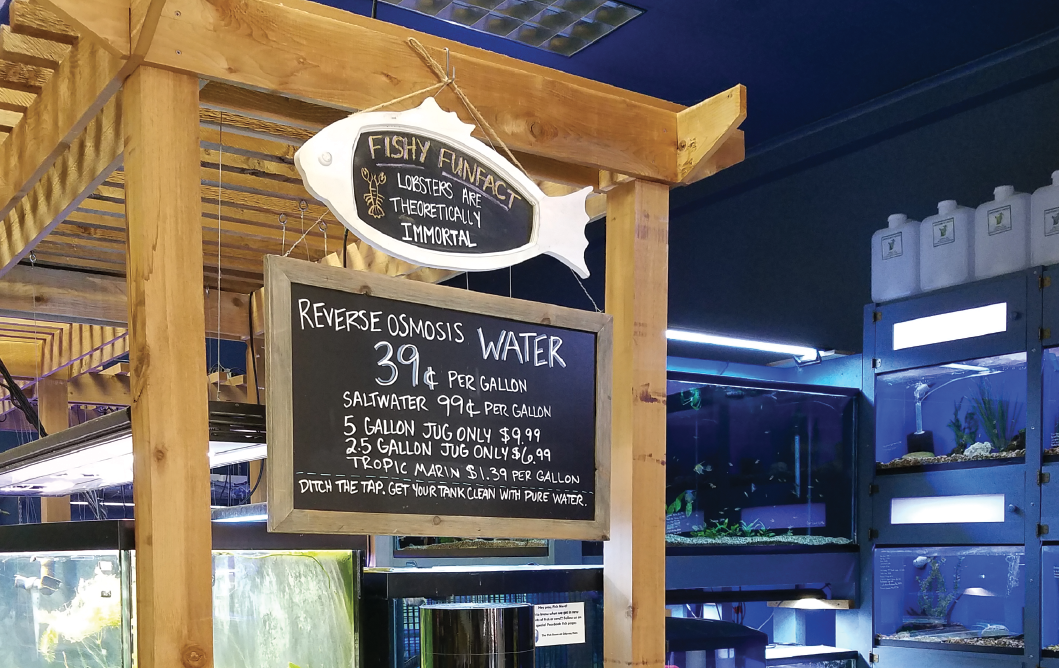
ODYSSEY PETS
DALLAS, TX
The reverse osmosis system at Odyssey Pets purifies water for aquariums on display and for tanks in customer homes. During the process, 50 percent gets bypassed.
“Most fish stores just throw that water away. We collect it in a separate container for use,” explains Mike Doan, who owns and operates the business with his wife Sherry Redwine, and her parents, Bill and JoAnn. “It’s good, clean water. We don’t wash dogs with it because mineral content is a little high, but we can use it in other ways.”
Employees clean everything but pets with the bypassed water, from towels to floors.
“An aquarium system wastes a lot of water. This is how we control that waste,” he says.
The owners have found several ways like this to incorporate environmental sustainability while reducing their water, electricity and other expenses. In the grooming department, locally made and eco-friendly Espree products flow through a pressurized container system that limits the amount dispensed. A separate drying room allows groomers to work more cleanly and, therefore, more efficiently, with additional help from a ceiling fan that vents hair and fur onto the Odyssey Pets roof, where it becomes nest-building material for birds instead of taking up space in a landfill.
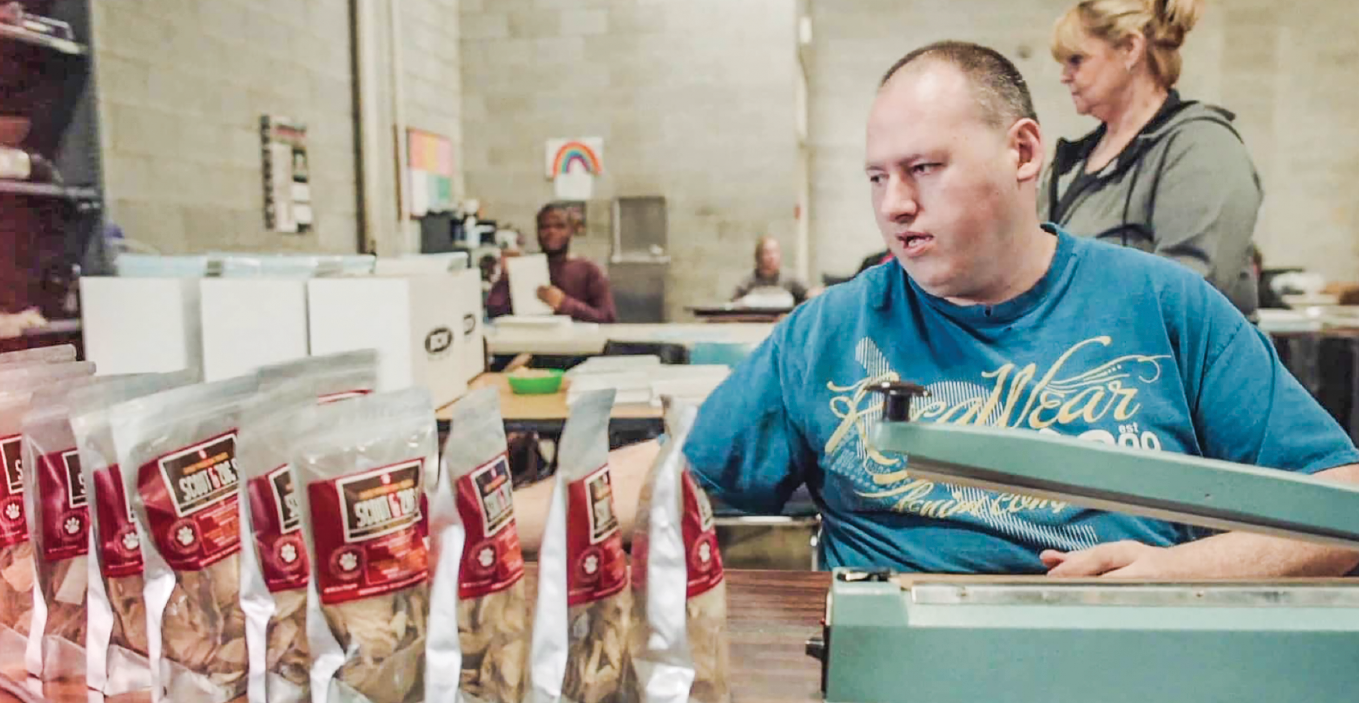
SCOUT & ZOE’S
ANDERSON, IN
Cindy Dunston Quirk checks multiple sustainability boxes with her Scout & Zoe’s Carpius Maximus. By purchasing carp from Kentucky fisherman, she helps control the population of a prolific and invasive species that threatens ecosystems in that state and beyond.
A second-chance employer — one that employs those with criminal histories, allowing them to become contributing members of society again — processes the fish, smoking or dehydrating it into tasty treats for dogs and cats.
Finally, individuals with disabilities receive vocational training while packaging Carpius Maximus. Quirk highly recommends implementing such sustainable practices to her fellow pet business owners.
“Be true to your beliefs and principles. It might be easier and less expensive to compromise on being green, organic, natural, etc., but you still have to abide by the choices you make,” she says. “Sticking to my beliefs of sustainable, premium human-grade ingredients allows me to say with 100 percent certainty that when a pet parent purchases a Scout & Zoe’s product, it is safe and nutritious for their fur kid as well as good for the planet and its people.”
THE GREEN SPOT
OMAHA, NE
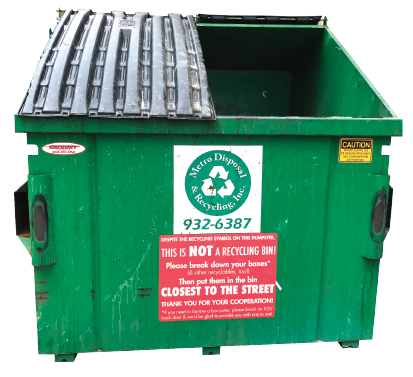
Sisters Jessica Ellis and Whitney Kamish created their pet store with the environment in mind.
“We are about the earth and making it a better place,” Ellis says. “We want to use our business as a force for good, do good through it.”
That means looking at the environmental impact of the products it carries, but of how The Green Spot operates as well. Customers receive receipts via email. Employees use washable rags instead of paper towels. Pets get groomed with eco-friendly Earthbath products. Open Farm and Earthborn food bags come back to the store empty for free recycling through TerraCycle.
Ellis and Kamish also try to help neighboring businesses be more green. Most recently, they cleared up confusion surrounding shared dumpsters in their shopping center. “Only one is for recycling, but all three have a recycling logo, so cardboard was going into all of them,” Ellis explains. “We made these big magnets that say, THIS IS NOT A RECYCLING BIN.”
The sign identifies the correct dumpster and even offers up The Green Spot’s box cutters for breaking down items, which creates more space for recyclables and keeps cardboard overflow from being sent to a landfill.
POLKADOG BAKERY
BOSTON, MA
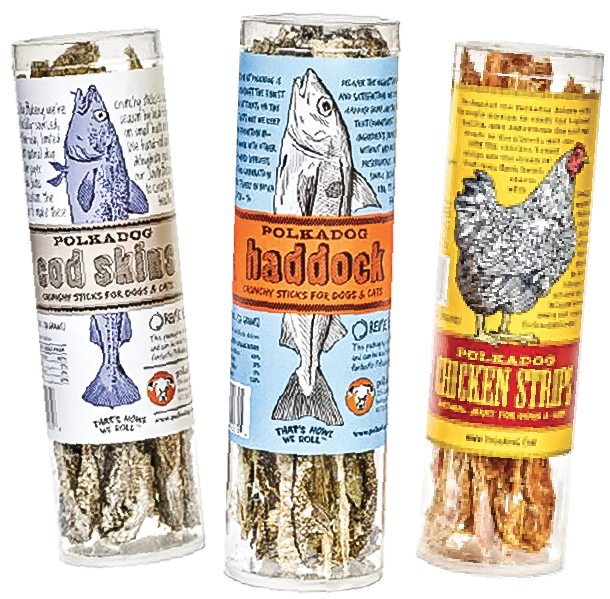
To source ingredients any more locally, Robert Van Sickle would have to move his kitchen onto a fishing boat. Polkadog Bakery headquarters sits in South Boston, where access to just-caught fish makes the company’s dog and cat treats not only delicious, but also an example of sustainability on multiple levels.
Fish don’t have far to go after leaving the pier, and once dehydrated or baked into treats, the bakery’s five locations are within 15 miles. This proximity of supply to manufacturing to retail supports local producers and minimizes environmental impact and cost of transport.
Van Sickle built and runs his business with that and other sustainability issues in mind. He purchases whole fish but also uses skins and trimmings, keeping them out of landfills.
Employees at Polkadog are also valued as a sustainable resource.
“We pay our people well enough to live in the city, in communities they are from,” Van Sickle says. “We don’t want them to be stressed about making it to the next paycheck.”
Living near work also means they can take public transportation and not commute by car, a factor he considered when choosing the current location of company headquarters over a similar setup outside of Boston.
Customers can also contribute to Polkadog’s eco-friendly efforts at retail locations. The stores sell in bulk, offer credits for reusing bags and give discounts to those who bring back certain packaging to refill.
WEST PAW
BOZEMAN, MT
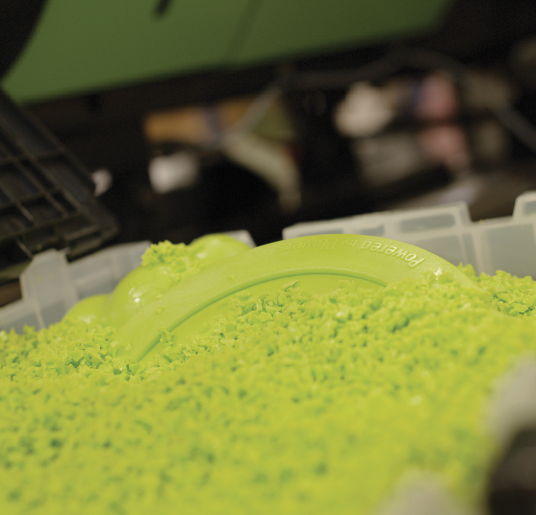
West Paw serves as a sustainability leader in the pet industry. It handcrafts 100 percent of its products in the U.S.A. and continuously looks for ways to eliminate waste from manufacturing.
It was the first pet company to use IntelliLoft, recycled plastic fill and fabric found in its toys and beds. Zogoflex, its proprietary plastic blend (nontoxic and BPA-free like all West Paw products), can be indefinitely recycled, during manufacturing and through Join the Loop, a program founder and CEO Spencer Williams touts as an easy way retail partners can practice environmental sustainability.
“They can provide incredible face-to-face service to a customer by saying, ‘OK, I’ll take that toy back. We’ll send it back to the company so it can be made into a brand-new toy for someone else, instead of it ending up in a landfill. Here’s another product from West Paw I recommend.’ What a powerful message in today’s market,” he says.
For all of the above and many other reasons, West Paw earned B Corp status in 2013. Such designation recognizes a company’s commitment to environmental and social sustainability, accountability and transparency.
“One of the best ways to approach sustainability is through employee engagement. We practice open-book management,” Williams explains. “It shares our company’s challenges and successes, allowing our employees to provide input that will improve our business.”
Those on the front lines help drive eco-friendly improvements in manufacturing, and additional teams have self-formed to better the lives of employees and community members. One effort that touches all aspects of sustainability is West Paw’s funding of and volunteering at dog parks.
“Open space can be a really wonderful part of an ecosystem in a community. We also believe in the power of connecting and spending time with your pet,” he says. “Helping to create spaces that dogs and people can enjoy, that benefit the environment and the community, it’s very fulfilling and brings joy and satisfaction to everyone involved. And it lines up with our business of making pets and people happy.”
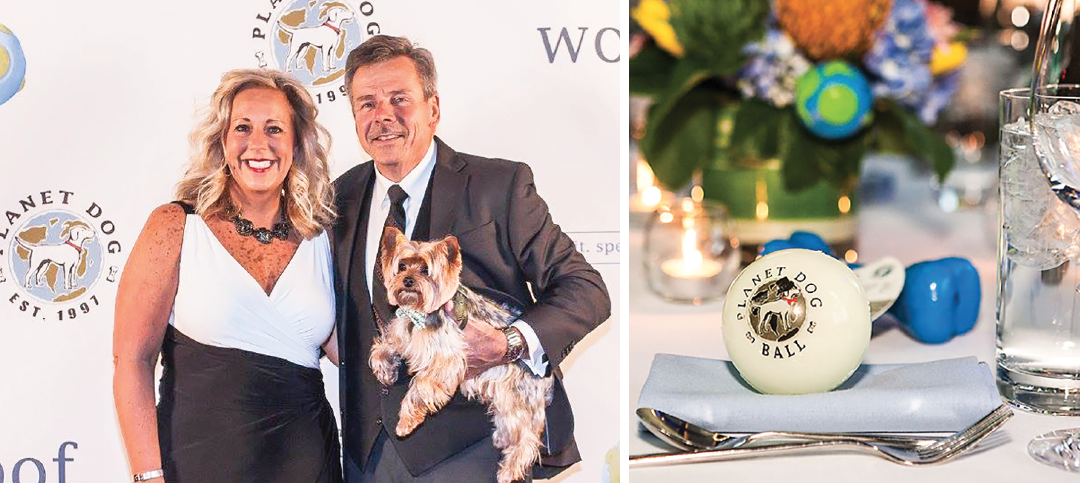
PLANET DOG
WESTBROOK & PORTLAND, ME
Founded by Alex Fisher in 1997 as an environmentally friendly and socially conscious company, Planet Dog has set an example for how pet product manufacturers can embrace sustainability on multiple fronts.
“Twenty years later, it’s still part of our DNA. It’s what matters to us and has become even more relevant today,” CEO and partner Colleen McCracken says.
Waste from the injection-molding process that makes Orbee-Tuff dog toys gets captured and re-used for Orbee-Tuff Recycle balls and bones. All Orbee-Tuff products are made in the U.S.A. Leashes, collars and harnesses feature highly renewable hemp as well as handles made from recycled fleece. The company recently switched from shipping boxes within boxes to paper bags within boxes.
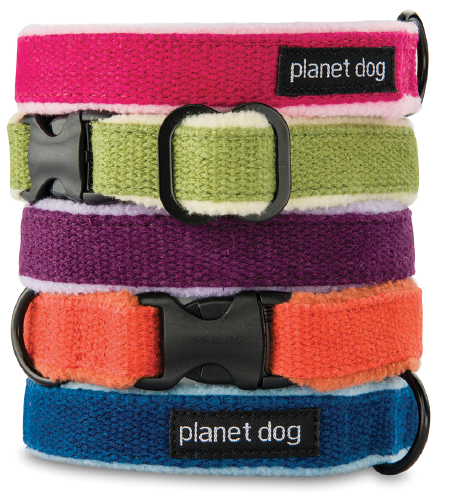
“Now we’re not using as much cardboard or paying to ship air,” McCracken explains. “Our retailers love it. They’re not getting so many boxes, and they appreciate that we’re thinking about the environment.”
The company celebrated a social sustainability milestone in April of last year, when its Planet Dog Foundation held the first Planet Dog Ball. The foundation, which began in 2006, funds the training, placement and support of working dogs. The event raised $80,000 for two organizations: America’s VetDogs and K9s on The Front Line.
“To date, the foundation has given $1.6 million in grants to more than 150 organizations. We’re very proud of that. It’s the heart part of what we do at Planet Dog,” McCracken says.
Eco-friendliness also runs through the entire company. To tap its power, an employee Sustainability Council meets once a week to assess ongoing efforts and make new recommendations. Their monthly lunch-and-learns feature speakers from the ranks as well as from the community. Composting at headquarters and the company store now takes place thanks to a talk led by curbside provider Garbage to Garden.
ECO DOG CARE
LOS ANGELES, CA
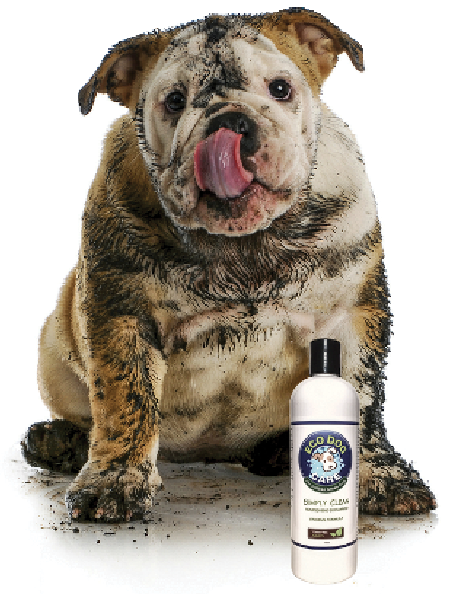
Sisters Jane and Karen Bond practice what they call “smart sustainability.” Their Eco Dog Care line of grooming products are both environmentally friendly and effective. Take their Simply Nourishing Shampoo. It does not contain ingredients that may harm the planet, people or pets. But it still cleans deeply, smells good and repels pests thanks to plant extracts.
“Whatever we put in our products also has to deliver functional value,” Jane says.
They incorporate that same smart sustainability into the operation of Eco Dog Care LA, their grooming, daycare and boarding facility. Overnight guests get their own Kleanbowls, single-use, compostable/recyclable dishes. Using the product helps prevent germs from spreading and saves water, energy and employee time that would have been spent on washing. Employees also use bioDOGradable poop bags, but as with the bowls, not exclusively.
“We haven’t shifted completely to bioDOGradable as they are more expensive,” Jane explains. “We look for products that will lessen our impact on the environment. Then knock it down bit by bit by layering them in one at a time.” That approach makes practicing sustainability more manageable, Jane says, adding, “We have to be practical, too, as small businesses.”
Join The Pet Sustainability Coalition Even the most forward-thinking businesses need help and support when it comes to sustainability. One of the best resources is membership in the Pet Sustainability Coalition. Many of the businesses we feature here have joined, including founding members West Paw and Planet Dog, plus The Green Spot, Polkadog Bakery and Eco Dog Care.
West Paw founder and CEO Spencer Williams shares how the coaltion can move your company forward in this important area:
“The whole idea of sustainability can be completely overwhelming, but PSC exists to take that feeling away. What we want in business is a measure that can help us see if we’re making progress. Often that sole measure is profits, but more and more we realize that profits shouldn’t be the only measure.
“You take an assessment, spend an hour and a half online to receive insight into how your businesses is performing in the key areas of sustainability. Then you have a baseline, and with the help of PSC decide what the next thing is you can do, and it might be as simple as changing out lights or looking at a way to retain employees longer through better engagement programs.
“You then go back to the assessment at least once a year to see what your new score is. That provides tremendous value for a small business looking to make incremental but meaningful steps toward a more sustainable tomorrow.”
Visit petsustainability.org for more information and to join.
10 SUSTAINABILITY TAKEAWAYS
1 Look at your business through a sustainability lens. Start by taking the Pet Sustainability Coalition assessment.
2 Talk to your neighbors. There may be ways to share costs and resources to reach common goals.
3 Find community partners. See above.
4 Use manufacturer recycling programs. They’re free, easy and involve customers in your sustainability efforts.
5 Think twice before throwing anything away. Is it something you could sell? Or use elsewhere in your business?
6 Think about what others throw away. See above.
7 Talk to your waste-management and other providers. They may surprise you with a sustainability improvement that saves you both money.
8 Involve your employees. They have great ideas! And implementing their ideas leads to job satisfaction and longevity.
9 Look for free money. Research what federal, state and local funds you can apply for when making sustainability improvements.
10 Pace yourself. You don’t have to save the world all by yourself or in one year. Create short-term and long-term goals.